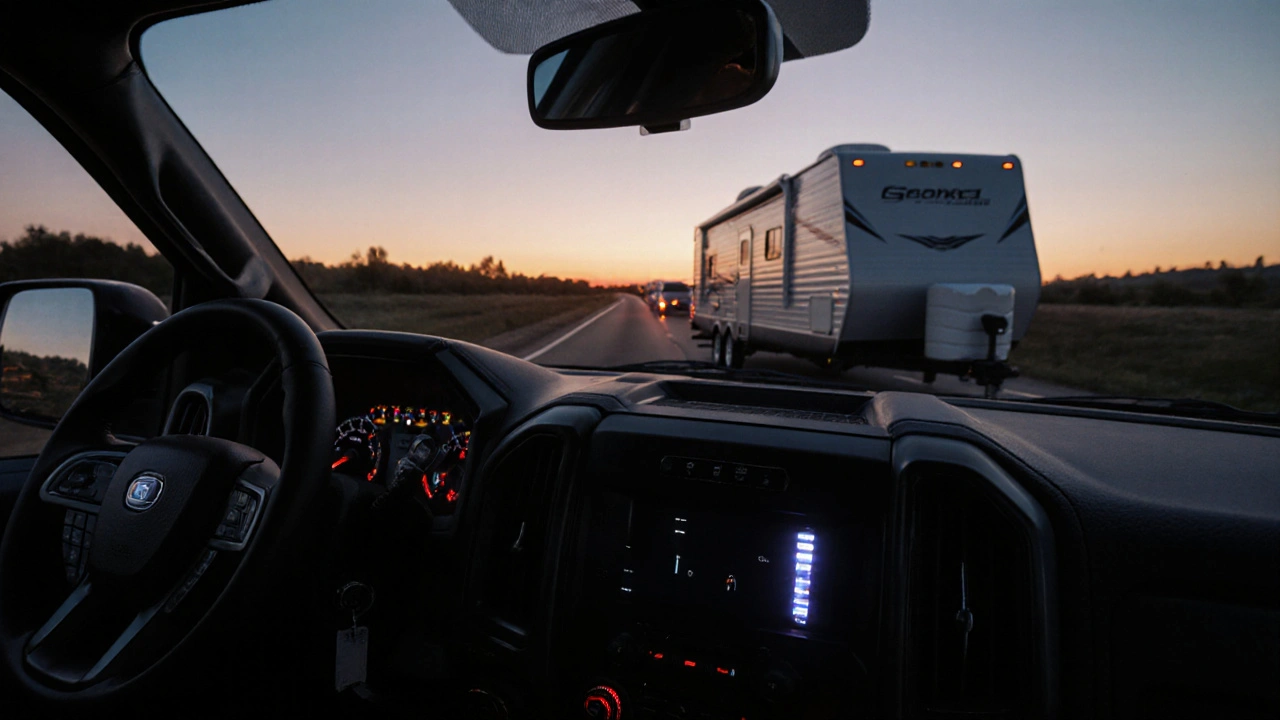When you attach a trailer, a towed vehicle or cargo carrier pulled by a car, truck, or SUV. Also known as utility trailer, it can turn a simple trip into a high-risk situation if not handled right. Trailer safety isn’t about fancy gear or expensive upgrades—it’s about checking the basics before you hit the road. Too many people assume that if the trailer hooks up, it’s safe. That’s how accidents happen. A loose hitch, worn tires, or broken brakes can turn a quiet drive into a nightmare in seconds.
Trailer safety starts with the hitch, the mechanical connection between the tow vehicle and the trailer. It’s not just about the ball size matching the coupler. The hitch pin, safety chains, and weight distribution all matter. A hitch that’s too loose? It can come undone. Chains that drag on the ground? They can snap under stress. And if your trailer weighs more than your vehicle’s rated capacity? You’re not towing—you’re gambling. The trailer brakes, the braking system on the trailer itself, often electric or surge-activated. are just as critical. Most trailers under 3,000 pounds don’t need them by law, but if you’re hauling a boat, ATV, or camper, they’re the difference between stopping in time and plowing into traffic. Don’t wait for a near-miss to realize your trailer doesn’t stop when you do.
Then there’s trailer maintenance, the routine care of wheels, bearings, lights, and frame to prevent failure on the road. Bearings that haven’t been repacked in two years? They can seize up and melt. Lights that don’t work? You’re invisible at night. Tires that are bald or underinflated? They can blow out at highway speed. These aren’t "maybe" issues—they’re ticking time bombs. And if you’re towing in rain, wind, or hills, the risks multiply. A trailer that sways isn’t just annoying—it’s deadly. Weight distribution bars and sway control devices aren’t luxuries. They’re lifesavers.
You don’t need to be a mechanic to keep your trailer safe. Just be consistent. Check the hitch before every trip. Test the brakes on a quiet road. Spin the tires by hand to feel for roughness. Look for rust on the frame. Make sure the lights blink in sync. These steps take ten minutes—but they can save your life. The posts below give you real, no-fluff advice from people who’ve been there: how to fix a broken trailer light, why your trailer pulls to one side, what to do if your hitch starts to squeak, and how to choose the right tires for your load. No theory. No sales pitches. Just what works.
Posted by
Liana Harrow
14 Comments

Learn why brake controllers are essential for safe trailer towing with pickup trucks. Discover how they work, which type to choose, installation tips, and common mistakes to avoid.
read more